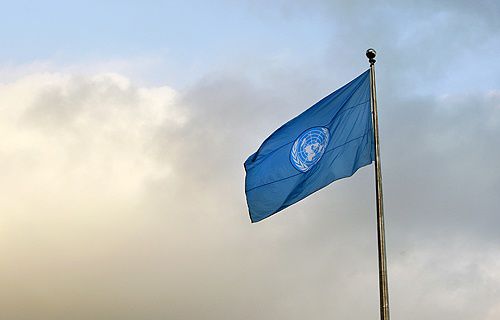A U.N. anti-torture committee’s report on the Holy See recognized Church efforts to combat sex abuse, but some problems in the committee’s approach risk undermining international treaty agreements, observers said. “It is encouraging to see the Committee Against Torture affirm and praise the important reforms the Church has put into place to protect children and its ongoing commitment to those reforms,” Ashley McGuire, an advisory board member of Catholic Voices, said May 23. She noted that the report cites Pope Francis’ words that the Church “will not take one step backward” in its response to sex abuse and to sanctioning its perpetrators. The U.N. committee reviews the activities of countries that have signed the Convention Against Torture, meeting with delegations from signatory countries every five years. The hearing on the Holy See’s adherence to the convention took place in Geneva in early May. The committee report was released May 23. The committee report cited the Holy See’s “clear condemnation” of the use of torture and noted Pope Benedict XVI’s 2007 statement to prison chaplains that the prohibition against torture “cannot be contravened under any circumstances.” The committee acknowledged that the Holy See, Catholic dioceses and religious orders have instituted “important efforts” to prevent sex abuse. It said the Holy See should ensure effective monitoring of accused clergy, prevent the transfer of clergy who face credible abuse accusations, and report allegations to civil authorities. Noting that the committee did not find that the Holy See violated the Convention Against Torture, McGuire said the report is the first time that an international institution such as the United Nations has “publicly affirmed that the Church has reformed and moved forward.” McGuire said the committee also backed away from the “extremist argument that to be pro-life is to be pro-torture.” The committee vice-chair, U.S. appointee Felice Gaer, had told the Holy See delegation that the committee had found that criminalizing abortion in all circumstances can violate the anti-torture convention. A more critical view of the committee came from James Kelly, president of the Atlanta-based Solidarity Center for Law and Justice. He said the committee review of the Holy See’s report on the anti-torture convention revealed “some disturbing abuses occurring within the human rights treaty body system.” Kelly said that while the U.N. committee noted that rape does not fall under the definition of torture laid out in the convention, it also used ambiguous language, utilizing the terms “torture” and “sex abuse” in “close proximity” in a way that could confuse the reader. He said the committee unduly burdened the human rights treaty body system, which is not intended to serve as tribunals or courts of law. The manner in which the Holy See hearing was conducted means that countries must begin to treat the proceedings like a tribunal or a court or “they will become victims of a distorted quasi-judicial process,” he cautioned. Kelly particularly criticized Gaer, saying that she significantly relied upon the work of two non-governmental organizations in a manner that showed a lack of impartiality. He contended that Gaer attempted to expand the legal definition of torture to include abortion opposition and also used the news media to advance that interpretation in a way that was “improper and misleading.” In addition, Kelly said Gaer approached the hearings as if they were a law-making body. He alleged that she acted as if the convention can be amended through the committee hearing process, rather than by formal amendment by state parties to the convention. If these problems are not corrected, Kelly warned, they will “continue to weaken” the convention system, which he said is an “important vehicle for protecting human rights throughout the world.”

